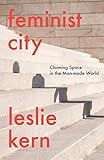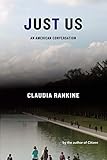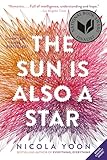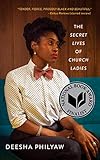I keep thinking about a weekend in January that felt as if the entire year was contained inside it. On the Friday, my husband I drove back to Michigan, the sky gray and the air pressure low and the grocery stores crowded with people buying water and wine and bread for when the snow started. I was reading to him on and off through the drive my favorite sentences from Meng Jin‘s Little Gods. The next day, the storm had started, and we were at a memorial service. The officiant didn’t really talk about our loved one, he somehow instead used it as an opportunity to talk about gender roles “being a good wife, a good mother, an ideal female”; someone found a way to turn this moment meant to heal into a discussion about race in the state of Michigan. I felt wild and exhausted. I read the program over and over, trying to be anywhere else. Don’t let this happen to me when I die, I thought, and felt a little ashamed to be thinking about me, then, there.
Then, we drove directly through the storm. Cars slid into ditches. We were alone together and listening to the only thing that felt right, Donna Summer‘s Greatest Hits. People veered off the road. Ambulance and police sirens flashed, then disappeared into the snow, the permanent gloaming from the storm. The next morning, we went to our niece’s baptism. We read about how in the Catholic church, a baptism is an exorcism. I had forgotten that fact and I couldn’t stop reading about it after. People kept talking to us about how we had experienced the full circle of life in one weekend. The end, the beginning, and us in our thirties, and we were probably starting to feel old. I’m not; in some ways I feel younger than ever. But now, I think the whole year for me was in that weekend.

When I was back in Indiana, I almost immediately had to fly to Baltimore. In a hotel room, I stayed up late reading Fiebre Tropical by Juliana Delgado Lopera that I snatched off a table at Winter Institute. On an airplane, I read my students’ response papers about how they felt their gender impacted their education. It was overwhelming to read almost twenty young women from different states, cities, economic backgrounds all say, they felt that their ability to learn was less valued than their ability to conform. When I couldn’t grade any longer, I read Ice by Anna Kavan. I picked up Kelli Jo Ford‘s Crooked Hallelujah, read the first story and felt a little less miserable. Later that month, I started reading Hilary Leichter‘s Temporary because I found the cover pulled me in and made me deeply uncomfortable. The whole book felt that way in the best way.

February, I read The Haunting of Hill House and felt miserable. I read the news and worried. I read Feminist City by Leslie Kern and complained about the world. I read The Beauty of the Husband by Anne Carson and felt miserable. I started reading an advanced copy of Raven Leilani‘s Luster and felt seen. I read Homie by Danez Smith and cried. I read Days of Distraction by Alexandra Chang and laughed and felt like I was with a friend.

In March, my own book, Lakewood, came out. I started reading it to people. Anxiety had gnawed holes into my brain and I kept reading my book and being surprised that I had written parts of it. I read letters from people who loved it and didn’t believe them. I skimmed letters from people who had wild things to say to me because of it and felt a mixture of annoyance and anthropologic disbelief. I mostly read the news and homework assignments. My students were thinking about how their relationships with oppression and privilege had shaped their abilities to learn. I read that dying from COVID can feel like drowning. I kept reading the same articles over and over. In a gross way, I was re-reading Edwidge Danticat‘s The Art of Death in fiction. I re-read Juan Martinez‘s Best Worst American because I was excited to talk to him. I wrote a letter to my congressman who said it was fine for people to die to save the economy. His office wrote one back encouraging me to cheer up.
In
April, I read to try to stay alive. My brain was rusted out.
What
can I do to help you? Are you okay? I’m worried about you. So many emails, so
many text messages. I spent a lot of time watching K Dramas and wondering when
I would sleep again.



These Ghosts Are Family by Maisy Card, How Much of These Hills is Gold by C Pam Zhang, The Eighth Girl by Maxine Mei-fung Chung, Their Eyes Were Watching God by Zora Neale Hurston, Winter Counts by David Heska Wanbli Weiden, We Have Always Lived in the Castle by Shirley Jackson, Braiding Sweetgrass by Robin Wall Kimmerer, The Black Maria, The Charlotte Holmes mysteries. I read all of these and they kept leaking out, I would go back pages and pages, promised myself I would read them all again. A few of these have notes from me to me in it. Birthright by George Abraham which I tried to portion out but kept reading just one. I wrote a blurb for Joshua Young‘s wild Little Galaxies. Marlin M. Jenkins‘s Capable Monsters read one early morning at 4 AM.

The book memory from this month feels brightest and alive is on the nights I couldn’t sleep, my husband would sometimes notice, wake fully up, and turn on a light. He would read me Pride & Prejudice in a soft voice. One hand on the book, the other wrapped around me. The sentences were long and complicated, and they made me not think about anything else but the thread of them.


May, a student told me over Zoom that she did not think she could ever fall in love with poetry. I read her “I Had A Dream About You” by Richard Siken from Crush over Zoom. She bought the book and wrote an email to me about it later that month. She was not in love with poetry but she was ready to try. I re-read Jen George‘s The Babysitter at Rest. My lifelong learning students were focusing on flash. We read wigleaf and Split Lip. We read “Collection” by C Pam Zhang from Forward and talked about voice and confusion and otherworlds. They wrote about mothers with postpartum, influencers seeing each other, a girl in love with the devil, monsters, a man whose appliances spoke to him. I read Ilana Masad‘s All My Mother’s Lovers on my porch in the evenings. We’d had plans to walk and talk in San Antonio together, but the closest I got to that was thinking about her work in the evenings.



In June, I read Elwin Cotman‘s Dance on Saturday and it made me want to write again. Kim Jiyoung, Born 1982 by Cho Nam-Joo and A Burning by Megha Majumdar made me clench my jaw but in a positive way. On Lighthouses by Jazmina Barrera made me unclench my jaw; it probably gave me my only true vacation of the year. It was another month where I was back to not sleeping. The news was steeping in me. I re-read “Arrest Record” by Desiree Cooper and was impressed by her ability to capture the pressure of being alive today. I kept reading an email a former student had sent me that was deeply racist and wondering if there was even a point to working as an instructor if the reaction to being asked to think deeply about representation was something like this. Everything I essentially wrote about being alive during these weeks was either I wish I was an illiterate animal who only thought about eating or that I was sure 1000 years from now it would be clear that the majority of people in the United States were suffering from lead exposure. I read emails from people who sympathized and connected with me after I wrote about my mental health issues. I read a message from someone who told me I should have killed myself. You can’t tell me what to do, I thought, and deleted it. Maybe it is a true sense of you’re-not-my-dad! anger that will keep me alive.



July, I read Their Eyes Were Watching God again. I read Pew by Catherine Lacey. I re-read Jami Attenberg‘s All This Could Be Yours and thought again about how to break rules. My husband and I read each other Jasmine Guillory‘s Party of Two and talked about the Jasmine Guillory extended universe. In my hammock, I read We Who Are About To…by Joanna Russ and processed nothing I was reading but couldn’t put it down. I read Once and Forever: The Tales of Kenji Miyazawa and I kept putting the book down because it made me want to write, to return back to feeling like I could be weird and funny and imaginative on the page.
I started writing again in earnest and threw myself into research. I read books by Gemma Gray and blogs by practicing witches. A spell you can do on your worst enemies is to bake a loaf of bread using something of theirs in it. The soot from their house, their hair or fingernail clippings. Something personal. You write their name in the loaf. And when it’s baked, you stab the loaf with a blade and hide it somewhere to rot. 2020, I thought, this is what you are.


August, I re-read Citizen by Claudia Rankine and wrote a large assignment to go with it. I read stories and novel beginnings from my Catapult students. A scene where a girl is living in crowded hotel ballroom with several other people during Katrina, a world where people can’t die even when their bodies have been burned or drowned, a woman named Darling living through the end of the world, a former life coach being seduced by his beauty pageant mentee. The worlds they built made me so excited for them, and that excitement carried over to my work. I finally finished reading We Ride Upon Sticks by Quan Berry. I re-read all of Crooked Hallelujah and put it on a syllabus. I re-read Heavy by Kiese Laymon and didn’t feel like I could handle being in a potentially all-white classroom over Zoom and talk about it and Citizen back to back.

I wish I could be one of those people who think that writing and reading is therapy. That those basic things could fix everything inside me. To say that all I needed to heal was writing the book, reading the right things. I tried to read The Summer Book on my hammock but spent a lot of time instead closing my eyes and letting the sun cook me slow. Books are part of what has kept me reaffirmed to staying alive this year, but they didn’t save me.


In September, my Shortbox came and I ate a chocolate potato chip candy bar while reading Charming Dog Adventures and Interim. I read Being Lolita by Alisson Wood and had to keep putting it down because I was getting too worried for her even though I knew she’s here, she’s okay. I read the subtitles on KDramas and animes. Spending most of my free time watching My Hero Academia and Mystic Pop-Up Bar. I read the chat boxes on my Zoom sessions, the tiny place where it felt like my students felt most free to connect with each other. My husband and I went away to a small cabin called Cowboy’s Way, thirty-ish minutes east. I kept reading him sections of a New Yorker article about sugar substitutes while he drew. I re-read parts of We Have Always Lived in the Castle after drinking wine by a bonfire. When my insomnia was bad, I would alternate between watching episodes of The Good Place and reading Lisa Hanawalt‘s I Want You and Chase Burke‘s Lecture. I also read FINNA but don’t remember anything about it other than thinking at one point, this is fun.
October,
most of my reading feels like it was back and forth between me and my agent
about my second book. My husband calls Dan my Writing Dad. Are you fighting
with Writing Dad? Are you embarrassed because Writing Dad is proud of you?
Nothing makes me cry like having my real dad or my writing dad say they’re
proud of me. They are regularly proud of me but it still makes something inside
me feel overwhelmed. I would like to be comfortable with people actually liking
me.
Emails
and news articles and message board discussions that made me simmer with the
thought: people are poisoning each other with their selfishness.

I read more witch books. I re-read The People Could Fly. I read to my students their own work, hoping they would hear what was good and worthwhile and beautiful in it if someone else read it back to them with care. I read Just Us by Claudia Rankine. I read Some Girls Walk Into The Country They Are From by Sawako Nakayasu and Yi Sang‘s Selected Works. I read and wrote blurbs for LaTanya McQueen‘s excellent When The Reckoning Comes (August 2021!) and Justin Brouckaert’s also excellent, Love Stories (& Other Love Stories).
The
night before Halloween, I hosted a salon for Girls Write Now! Over the two
hours, the girls wrote about murdering evil parents and high school bullies,
being time travelers, being mysterious beautiful women with dark secrets, and
friendship between sisters. I wore a hastily thrown together costume and for
the first time in months felt a wholesome benevolence toward all other people.


November: Exposition by Nathalie Léger over a weekend while drinking a hot toddy. I cried my way through Kokoro by Natsume Soseki. There’s a moment in Kokoro, where the narrator has found a friend, a friend he has failed, dead in his room. There is a moment where he pushes through the intellectual feelings, pushes through the guilt, and suddenly, grief like a sudden downpour on an August day. The captions on Demon Slayer: Kimetsu No Yaiba. A return to Jazz by Toni Morrison. I had a cold and spent the day in bed sneezing and blowing my nose and finally reading Nicola Yoon‘s The Sun is Also A Star.


It’s the end of the year. I am still struggling to sleep. Sometimes, I lie awake thinking about how angry I am at myself. The hardest part for me in this year of bad mental health is learning how to accept and begin to move past all the ways I’ve betrayed myself. My husband is reading me The Heir Affair by Jessica Cocks and Heather Morgan before bed. This family has issues, we both agree. I am reading final portfolios and feeling proud of people who are mostly black zoom boxes or hilarious icons (Aang wearing a durag, the cat at the kitchen table from the yelling woman meme, a pentacle with 2020 in cursive above it) when I think about them in the classroom. I am reading Popisho by Leone Ross, Will and Testament by Vigdis Hjorth, The Secret Lives of Church Ladies by Deesha Philyaw, and The Office of Historical Corrections by Danielle Evans. Over the break, I tell myself I will finally read Women Talking, A House is a Body, Inheritors, Writers & Lovers, Memorial, DMZ Colony, True Love, The Red and The Black, Little Eyes, Be Holding. They’ve been next to my bed waiting for me.
I
tell myself that next year will be another loaf of bread. It will not be
sourdough. It will not be a loaf baked to rot in a cave witch-style. I will
find a way in these three weeks coming between 2020 and 2021. In 2021, I have
two big goals. To keep reading and to forgive myself.
More from A Year in Reading 2020
Do you love Year in Reading and the amazing books and arts content that The Millions produces year round? We are asking readers for support to ensure that The Millions can stay vibrant for years to come. Please click here to learn about several simple ways you can support The Millions now.
Don’t miss: A Year in Reading 2019, 2018, 2017, 2016, 2015, 2014, 2013, 2012, 2011, 2010, 2009, 2008, 2007, 2006, 2005
The post A Year in Reading: Megan Giddings appeared first on The Millions.
Source : A Year in Reading: Megan Giddings











